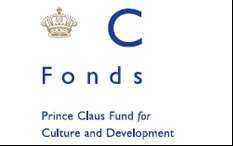| Friday, 21 August 2020 00:00 |
|
August 25th 2020, 3:00-4:30 pm (Bishkek time, GMT+6) Language: Russian Gulbara Baiyshovna Tolomushova Programme Director, “Umut” Forum of Young Cinema of the CIS Countries
Abstract This lecture will review and analyse new movies produced by talented Kyrgyz directors. Gulbara Tolomushova will first discuss “The Swings” (1993) by Aktan Arym Kubat. This film was produced following the independence of Kyrgyzstan in 1991, and exerted significant influence on the development of auteur cinema. For almost a quarter of a century after the production of this movie, the country has only generated a limited number of auteur films. In 2006, Rustam Atashov made the first box-office film “The Love of the Minister’s Daughter,” which was widely praised. Since then, experts in different countries have begun to talk about Kyrgyzstan's film industry. Kyrgyz Directors make movies for broad audiences, which are popular with movie-goers. Films within auteur cinema have often won recognition at international film festivals. In 2020, the country generated three new movies, two of which were shown at China's largest film festival, and the third was presented at the Shanghai International Film Festival. At this lecture, Ms. Tolomushova will also discuss new movies, including “Shambala” (directed by Artykpai Suyundukov) that is based on Chingiz Aitmatov’s “While Steamship” novel, “The Lake” (directed by Emil Atageldiev), and “Akyrky Koch” (directed by Bakyt Mukul and Dastan Japar Uulu)
Biography
Gulbara Tolomushova was born in Kyrgyzstan, and graduated from the Russian State University of Cinematography. She is a member of the Union of Cinematographers of Kyrgyzstan, Fédération Internationale de la Presse Cinématographique, and the Network for the Promotion of Asian Cinema. Ms. Tolomushova is a specialist at the Bishkek Movie House of the Department of Cinematography of the Ministry of Culture's Department of Information and Tourism of the Kyrgyz Republic. She is also editor and contributor to the Cinematography Development Fund (kyrgyzcinema.com), columnist of “Vechernii Bishkek” newspaper, and contributor the "Forum” and Kinokultura.com magazines. She has published a monography on “Territory Movistan. Kyrgyz Cinema in Faces” (1999), as well as a book on the “Power of Fragility and Toughness of Art. Women in Kyrgyzstan Cinema” (2017). She sits on the jury of many international film festivals, and attended the Berlin International Film Festival at the invitation of the Government of the Federal Republic of Germany in 2020.
Moderators Pulat Shoazimov (Professor, Doctor of Philosophical Sciences), Acting Head and Faculty Development Programme Manager at UCA's AKHP Khadicha Shambetalieva (Assistant Professor, Candidate of Philological Sciences), Regional Trainer, UCA's AKHP
Language The presentation will be conducted in Russian.
Lecture Format This lecture will be conducted online via Zoom video conferencing on August 25th at 3:00 pm (GMT+6, Kyrgyzstan time)
at: https://us02web.zoom.us/j/85272443372?pwd=L2lqd2JLRTJmSUFodWxmVG5WbVRNdz09.
Meeting ID: 852 7244 3372. Password: 024211.
Ideas presented in this lecture reflect the personal opinion of the speaker and do not necessarily represent the views of the University of Central Asia and/or its employees.
ucentralasia.org
|



